
Journal of Berry Research
metrics 2024
Innovating the Future of Berry Cultivation
Introduction
Journal of Berry Research, published by IOS PRESS, is an essential scholarly platform that addresses a wide array of topics related to the health benefits, cultivation, and innovation surrounding berry species. With an ISSN of 1878-5093 and an E-ISSN of 1878-5123, this journal has successfully carved a niche in various interdisciplinary fields, achieving notable rankings in its respective categories, including Q2 in Agronomy and Crop Science and Q3 in Biochemistry and Food Science as of 2023. The journal not only serves as a repository of rigorous research but also facilitates the exchange of knowledge among researchers, professionals, and students invested in agronomy, horticulture, and plant science. The HIndex reflects its growing impact within these disciplines. Set against the backdrop of the Netherlands since its inception in 2010, the Journal of Berry Research continues to provide cutting-edge insights, making it a pivotal resource for those pursuing advances in berry research and its associated fields.
Metrics 2024
 0.34
0.34 1.50
1.50 1.60
1.60 34
34Metrics History
Rank 2024
Scopus
IF (Web Of Science)
JCI (Web Of Science)
Quartile History
Similar Journals
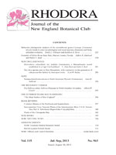
RHODORA
Connecting Scholars Through Botanical DiscoveriesRHODORA, published by the New England Botanical Club Inc, is a prominent journal dedicated to the field of botany, specifically focusing on Horticulture and Plant Science. With a rich history dating back to its founding years and ongoing publication from 1995 to 2024, this journal serves as a vital platform for disseminating research, reviews, and advancements in botanical studies. Though classified in the Q4 quartile for both horticulture and plant science in 2023, RHODORA remains an essential resource for researchers and practitioners, providing insights into plant ecology, conservation, and cultivation practices. While it does not offer Open Access options, the journal's commitment to quality research in a highly specialized field makes it a significant contributor to the botanical sciences, fostering collaboration and innovation among scholars and professionals in the United States and beyond.
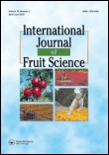
International Journal of Fruit Science
Elevating research standards in plant science.International Journal of Fruit Science, published by TAYLOR & FRANCIS INC, is a preeminent platform for the dissemination of high-quality research in the fields of Agronomy, Horticulture, Ecology, and Plant Science. With an impressive track record since its inception in 2005 and ongoing convergence up to 2024, this journal serves as a vital resource for scholars and industry professionals alike. Renowned for its rigorous peer-review process and comprehensive publication of cutting-edge studies, it holds a distinguished position in multiple Scopus rankings, including a top 10 placement in Horticulture (Rank #8/115) and notable percentiles, reflecting its significant impact in the academic community. Researchers can delve into critical insights related to fruit cultivation, genetics, and sustainability, bolstered by its Q1 and Q2 quartile standings across various categories. Though the journal is not open access, it remains an essential read for those intent on advancing knowledge and practices within the rapidly evolving landscape of fruit science.
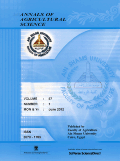
ANNALS OF AGRICULTURAL SCIENCES
Connecting Research and Practice for Global Agricultural AdvancementANNALS OF AGRICULTURAL SCIENCES, published by Elsevier, stands as a leading open access journal dedicated to the multifaceted field of agricultural sciences. Since its inception in 2011, this journal has served as a pivotal platform for the dissemination of high-quality research, covering areas such as agronomy, animal science, horticulture, food science, plant science, and soil science. With an impressive Q1 ranking across multiple disciplines and notable positions in Scopus Ranks—including #6 in Animal Science and Zoology and #3 in Horticulture—this journal is recognized globally for its significant contribution to advancing agricultural innovations. The journal caters to a diverse audience of researchers, professionals, and students, providing them with open access to cutting-edge studies that address critical issues in agricultural productivity and sustainability. Its commitment to high-impact research ensures that articles contribute meaningfully to the scientific community, fostering advancements in agricultural practices and policies.

Erwerbs-Obstbau
Exploring the Depths of Fruit Cultivation.Erwerbs-Obstbau is a pivotal journal dedicated to the field of horticulture, focusing on research concerning the cultivation and production of fruit. Published by Springer in Germany, this journal plays a crucial role in disseminating innovative findings and advancing the knowledge base within the agricultural and biological sciences landscape. With an impact factor that places it in the Q3 category of horticultural journals, it ranks #68 out of 115 in its field according to Scopus, demonstrating its relevance and contribution to ongoing debates and advancements in horticulture practices. Researchers, professionals, and students benefit from the insights and developments shared in its pages, as the journal has been successfully converging data and insights since its inception in 1983, including continuous contributions from 1996 to the present. Although the journal currently does not offer Open Access, its comprehensive articles are invaluable for anyone invested in the science of fruit cultivation and production.

Ornamental Horticulture-Revista Brasileira de Horticultura Ornamental
Fostering Global Collaboration in Ornamental PracticesOrnamental Horticulture - Revista Brasileira de Horticultura Ornamental, published by the SOC BRASILEIRA FLORICULTURA & PLANTAS ORNAMENTAIS, serves as a premier platform for disseminating high-quality research in the field of ornamental horticulture. With an Open Access model in place since 1995, this journal ensures that valuable findings in horticultural science reach a wide audience, fostering greater collaboration within the global community. Based in Brazil, this journal primarily focuses on the cultivation, management, and improvement of ornamental plants, contributing significantly to both the scientific and practical aspects of the horticulture industry. It has achieved esteemed rankings, including being classified in the Q2 quartile for Horticulture and Q3 for Plant Science in 2023, demonstrating its academic rigor and relevance. Scopus ranks it at 54th in Horticulture and 278th in Plant Science, positioning it among leading scholarly resources in these fields. The journal is committed to advancing knowledge through innovative research that aids in the sustainable development of ornamental horticulture practices.
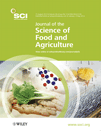
JOURNAL OF THE SCIENCE OF FOOD AND AGRICULTURE
Transforming knowledge into agricultural solutions.Welcome to the Journal of the Science of Food and Agriculture, a leading academic publication in the realms of Agronomy, Food Science, Biotechnology, and Nutrition. Founded in 1950 and published by Wiley, this journal has established itself as a vital resource for researchers and professionals committed to advancing knowledge and innovation in food and agricultural sciences. With a remarkable impact factor reflective of its esteemed status—ranking Q1 in Agronomy and Food Science and Q2 in Biotechnology and Nutrition, this journal stands at the forefront of critical research, featuring rigorous peer-reviewed articles that span a wide array of topics. Access options are available through institutional subscriptions, ensuring that indispensable research reaches both scholars and practitioners alike. As it converges into 2024, the journal continues to address key challenges and opportunities within the field, making it essential reading for anyone interested in sustainable agricultural practices and food security. Engage with cutting-edge research that shapes our understanding of food systems and agricultural advancements.

Terra Latinoamericana
Advancing Knowledge for Sustainable EcosystemsTerra Latinoamericana is a prominent academic journal published by the Mexican Society of Soil Science, focusing on the essential disciplines of soil science, biochemistry, and ecology. With a dedicated commitment to open access since 2014, this journal provides a platform for researchers and professionals to disseminate and access cutting-edge research aimed at understanding soil interactions, environmental pollution, and ecosystems within Latin America. The journal holds a Q4 ranking in multiple categories, including Ecology and Soil Science, reflecting its growing presence in the academic landscape and its role in fostering scholarly communication within these fields. Though currently positioned in the lower quartiles, Terra Latinoamericana presents a valuable opportunity for emerging scholars and experienced researchers alike to contribute impactful findings and engage with key issues affecting soil health and ecological sustainability in diverse environments. By promoting innovative research and collaborative dialogue, this journal continues to shape the future of soil science and related disciplines, making it an indispensable resource for the scientific community.
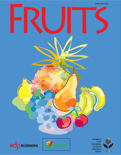
Fruits
Connecting Global Experts in Horticultural Research.Fruits, published by the International Society for Horticultural Science (ISHS), is a pivotal journal in the fields of Agronomy, Food Science, and Horticulture. Since its inception in 1995 and with a continued publication from 2001 to 2024, this journal provides a platform for innovative research and advancements related to fruit science, covering an array of topics from cultivation techniques to post-harvest processing. With an ISSN number of 0248-1294 and an E-ISSN of 1625-967X, *Fruits* engages a global audience, operating out of France and serving as a vital resource for academics, industry professionals, and students alike. Despite its current categorization as Q4 in Agronomy and Crop Science and Q3 in both Food Science and Horticulture, the journal is committed to fostering high-quality research and enhancing its visibility within the academia, as reflected in its Scopus rankings. Readers can expect rigorous peer-reviewed articles that contribute significantly to the understanding of fruit-related science, ultimately driving the advancement of sustainable practices in the field. Emphasizing accessibility, while currently not open access, *Fruits* remains dedicated to disseminating valuable knowledge to enhance the communal pursuit of excellence in horticultural research.

JOURNAL OF THE PROFESSIONAL ASSOCIATION FOR CACTUS DEVELOPMENT
Connecting Professionals in Cactus DevelopmentJOURNAL OF THE PROFESSIONAL ASSOCIATION FOR CACTUS DEVELOPMENT is an esteemed publication within the fields of Horticulture and Plant Science, managed by the Professional Association for Cactus Development. With its ISSN 1938-663X and E-ISSN 1938-6648, this journal stands as a vital platform for disseminating research and innovative practices concerning the growth, cultivation, and conservation of cacti. Despite being categorized in the Q4 quartile for both Horticulture and Plant Science in 2023, it provides invaluable insights and breakthroughs that are crucial for advancing knowledge and practices in this specialized area of study. The journal, which has been published consistently from 2003 to 2011 and from 2013 to 2024, encourages contributions from researchers, professionals, and students alike, fostering a community dedicated to the sustainable development of cactus species. Although currently not indexed with an impact factor or H-index, its targeted readership can access essential information to enhance both academic and practical applications within the horticultural sciences. For submission guidelines and further details, authors and readers are encouraged to visit the journal's official site.
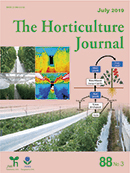
Horticulture Journal
Empowering Global Horticulture Through Open AccessThe Horticulture Journal, published by the Japan Society for Horticultural Science, is a leading academic platform dedicated to the advancement of horticultural research and practices. With an ISSN of 2189-0102 and an E-ISSN of 2189-0110, this journal endeavors to publish high-quality research that emphasizes innovative techniques, sustainable practices, and the science of plant cultivation. The journal has been recognized for its impact within the field, currently holding a Q2 ranking in Horticulture and a Q3 ranking in Plant Science as of 2023, indicating its significant contribution to advancing knowledge. With its open-access model, researchers, professionals, and students have the opportunity to engage with the latest findings, thanks to the journal's commitment to widespread dissemination of information. Since its convergence period began in 2015 and continuing through to 2024, the Horticulture Journal remains instrumental in promoting sustainable and beneficial practices in horticulture science globally.